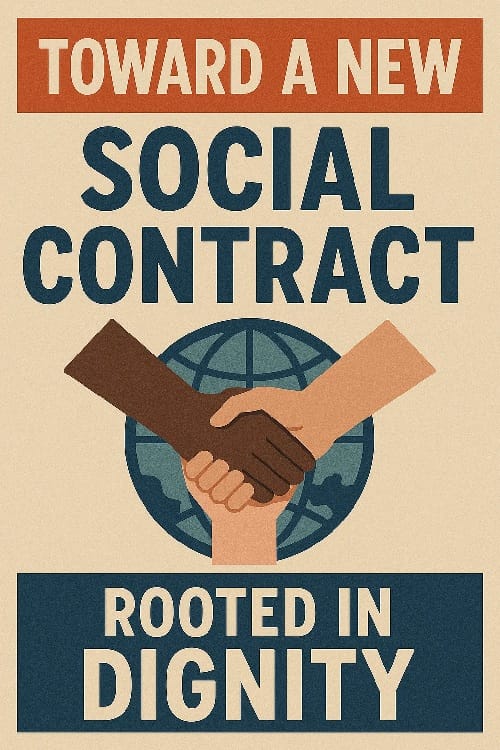Honoring Dignity in the Age of Data — Part VI
The old arrangements, contracts built on compliance, transactions, and fear of scarcity, are fraying. What must rise to replace them is not just a technical blueprint but a moral one, a social contract grounded in dignity.
-
4 min read






